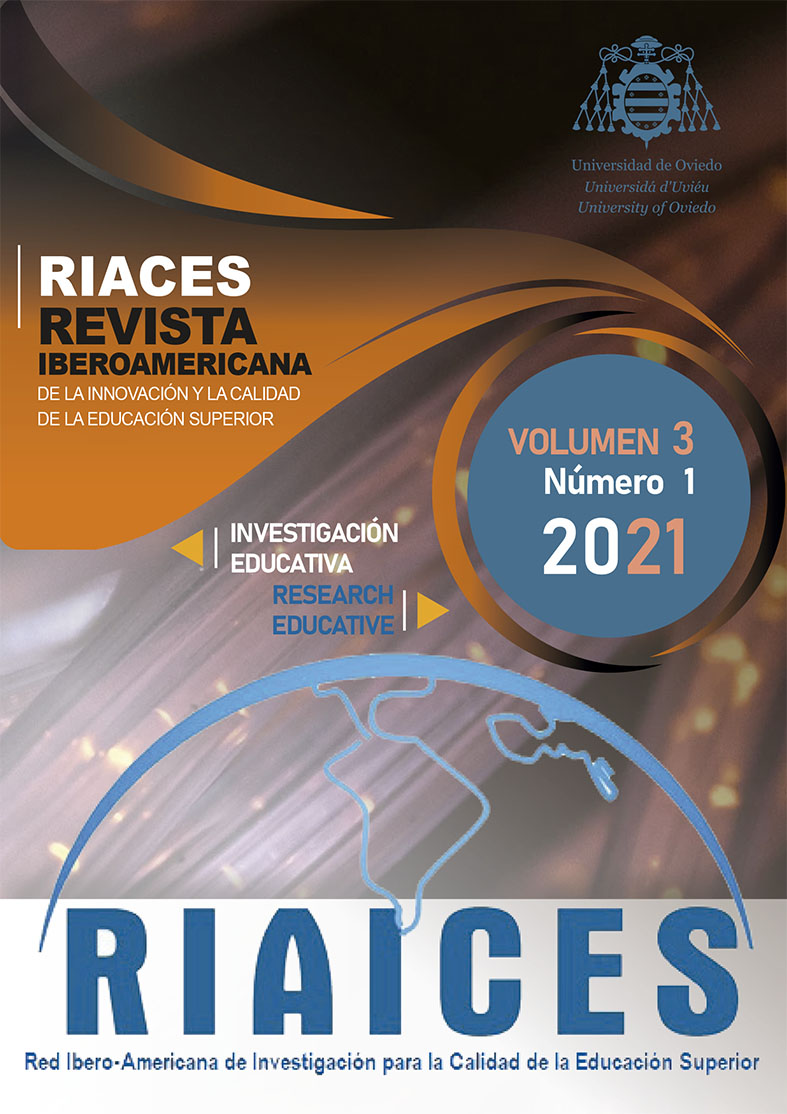Resumen
La educación en México ha tenido una serie de fracasos y mejoras a lo largo de los años, cuyas causas pueden estar en los nuevos modelos educativos que escenifican las familias, irracionalidades de planes curriculares, la deficiente/eficiente administración de la secretaria de educación, al comportamiento variante del alumnado o al profesionalismo del docente. Si bien cada aspecto tiene un impacto destacable en la formación de los estudiantes, el docente es quien escenifica todo lo que está detrás del esquema organizacional en el tema educativo, es quien termina ejecutando las decisiones tomadas. La intención de este estudio es generar una explicación sobre el comportamiento del alumnado a partir del papel que juega el docente dentro del aula visto desde las teorías de liderazgo docente, y a su vez, como este es influenciado por las condiciones laborales con las que debe hacer frente. El punto de referencia es el docente de educación secundaria pública en el noroeste de México. Recordamos que la preparación en este nivel educativo es un paso decisivo para la continuidad de los estudios de todo joven, constituyendo el último tramo de educación obligatoria, cursar los siguientes niveles es una decisión más personal y de oportunidad. Se describe el contexto situacional que le espera por vivir a todo docente, la problematización de sus condiciones actuales y posteriormente de la elección de teorías pertinentes para la generación de un modelo que sirva para el estudio y análisis de su labor, así como una propuesta de abordaje metodológico para su comprobación.
Citas
Álvarez, A. C. (2013). Teoría frente a práctica educativa, algunos problemas y propuestas de solución. Perfiles educativos vol.37 No.148. Recuperado de: http://www.scielo.org.mx/scielo.php?script=sci_arttext&pid=S0185-26982015000200011
Cerdá, L. & Ramírez, M. (2010). Evaluación de estilos de liderazgo en la docencia: una aplicación en la enseñanza universitaria de postgrado. Sistemas, Cibernética e Informática. Vol. 7, No. 1. Recuperado de http://www.iiisci.org/journal/CV$/risci/pdfs/MJ767WU.pdf
Diario Oficial de la Federación [DOF] (2013). Ley general de servicio profesional docente. Recuperado de http://www.sec.gob.mx/portal/docs/supervisores/3/3.1%20LEY%20GENERAL%20DEL%20SERVICIO%20PROFESIONAL%20DOCENTE.pdf
Ducoing, P. (2018). La educación secundaria mexicana: Entre la búsqueda del acceso equitativo y el rezago. Revista Educación, Vol. 42, No. 2. DOI: 10.15517/REVEDU.V42I2.27665
Escribano, E. (2018). El desempeño del docente como factor asociado a la calidad educativa en América Latina. Revista Educación, Vol. 42, No. 2. Recuperado de http://www.redalyc.org/ articulo.oa?id=44055139021
García, R. M. (2011). Liderazgo transformacional y la facilitación de la aceptación al cambio organizacional. Pensamiento Psicológico, Vol. 9, No. 16. Colombia: Pontificia Universidad Javeriana pp. 41-54
González, O., González, O., Ríos, G. & León, J. (2013). Características de liderazgo transformacional presentes en un grupo de docentes universitarios. Telos. Vol. 15, No. 3. Venezuela: Universidad Privada Dr. Rafael Belloso Chacín pp. 355-371
Guerrero, A. (2003). El profesorado como categoría social y agente educativo: sociología del profesorado. En F. Fernández. (Ed.), Sociología de la educación (pp. 307-331). Madrid, España: Pearson Prentice Hall
Hernández, D. F. & Villar, A. A. (2015). La formación permanente y su relación con otras variables educativas. La medida del compromiso educativo con la formación permanente en los países de la Unión Europea. Sinéctica No.45. Recuperado de http://www.scielo.org.mx/scielo.php?script=sci_arttext&pid=S1665-109X2015000200007&fbclid=IwAR1QIPJ9CZWrF-5S4akTk5r0g5Gn9Q2ulIwQjHw_qNHPffmE-uc4aCM9QR9k
Hernández, Y. M. (2013). Liderazgo académico. Revista de la educación superior. Vol. XLII (3), No. 167. México: Centro Universitario de la Costa de la Universidad de Guadalajara. pp. 105-131
Ingram, J. &Elliot, V. (2016). A critical analysis of the role of wait time in classroom interactions and the effects on student and teacher interactional behaviours. Cambridge Journal of Education, Vol. 46. DOI: https://doi.org/10.1080/0305764X.2015.1009365
Instituto Nacional para la Evaluación de la Educación [INEE] (2015). Los docentes en México, Informe 2015. Informes temáticos. México: Dirección General de Difusión y Fomento de la Cultura de la Evaluación
Jakonen, T. (2018). Retrospective Orientation to Learning Activities and Achievements as a Resource in Classroom Interaction. The Modern Language Journal, Vol. 102. doi: https://doi. org/10.1111/modl.12513
Kimura, D. (2018). Data collection considerations for class¬room interaction research: a conversation analytic perspective. Classroom Discourse, Vol. 9. DOI: https://doi.org/10.1080/194 63014.2018.1485589
Luna, E. & Reyes, E. (2015). Validación de constructo de un cuestionario de evaluación de la competencia docente. Revista Electrónica de Investigación Educativa, Vol. 17, No. 3. México: Universidad Autónoma de Baja California
Martins, F., Cammaroto, A., Neris, L. & Canelón, E. (2009). Liderazgo transformacional y gestión educativa en contextos descentralizados. Actualidades Investigativas en Educación. Vol. 9, No. 2. Costa Rica: Universidad de Costa Rica pp. 1-27
Medina R. A. Mata F. S., (2009). Didáctica General. Madrid: Pearson Educación.
Medina, A. & Gómez, R. (2014). El liderazgo pedagógico: Competencias necesarias para desarrollar un programa de mejora en un centro de educación secundaria. Perspectiva educacional, formación de profesores. España: UNED
Molero Alonso, F., & Recio Saboya, P., & Cuadrado Guirado, I. (2010). Liderazgo transformacional y liderazgo transaccional: un análisis de la estructura factorial del Multifactor Leadership Questionnaire (MLQ) en una muestra española. Psicothema, 22 (3), 495-501.
Palací, D. F. (2005). Psicología de la organización. España: Pearson.
Palmero, F & Martínez, F. (2008). Motivación y emoción. México: McGrawHill
Quintana, C. J. (1980). Sociología de la educación, la enseñanza como sistema social. España: Editorial Hispano-Europea
Secretaria de Educación Pública [SEP] (2017). Estadística del Sistema Educativo: Sonora, ciclo escolar 2016-2017. México: Dirección General de Planeación, Programación y Estadística Educativa
Skarbo, S. M. (2016). Displaying knowledge through interrogatives in student-initiated sequences. Classroom Discourse, Vol. 7. DOI: https://doi.org/10.1080/19463014.2015.1095105
Villalta, M., Martinic, S. & Guzmán, M. (2011). Elementos de la interacción didáctica en la sala de clase que contribuyen al aprendizaje en contexto social vulnerable. Revista mexicana de investigación educativa, Vol. 16 No. 51. México: Consejo Mexicano de Investigación Educativa, A.C
Villanueva, G., De la Cruz, J., Urrutia, C. & Sánchez, J. (2019). Evaluación de la Competencia de Liderazgo Docente en el aula: orientada a la mejora de la enseñanza. Recuperado de http://www.dcb.unam.mx/Eventos/Foro4/Memorias/Ponencia_07.pdf
Vivas, P. H. (2016). Economía y Sociología de la educación, los retos del siglo XXI. Sociología y Economía, No. 30. Recuperado de http://www.scielo.org.co/scielo.php?script=sci_arttext&pi¬d=S1657-63572016000100001
Yelon, S. & Weinstein, G. (2008). La Psicología en el aula. México: Ed. Trillas

Esta obra está bajo una licencia internacional Creative Commons Atribución-NoComercial-SinDerivadas 4.0.
Derechos de autor 2020 Riaices


